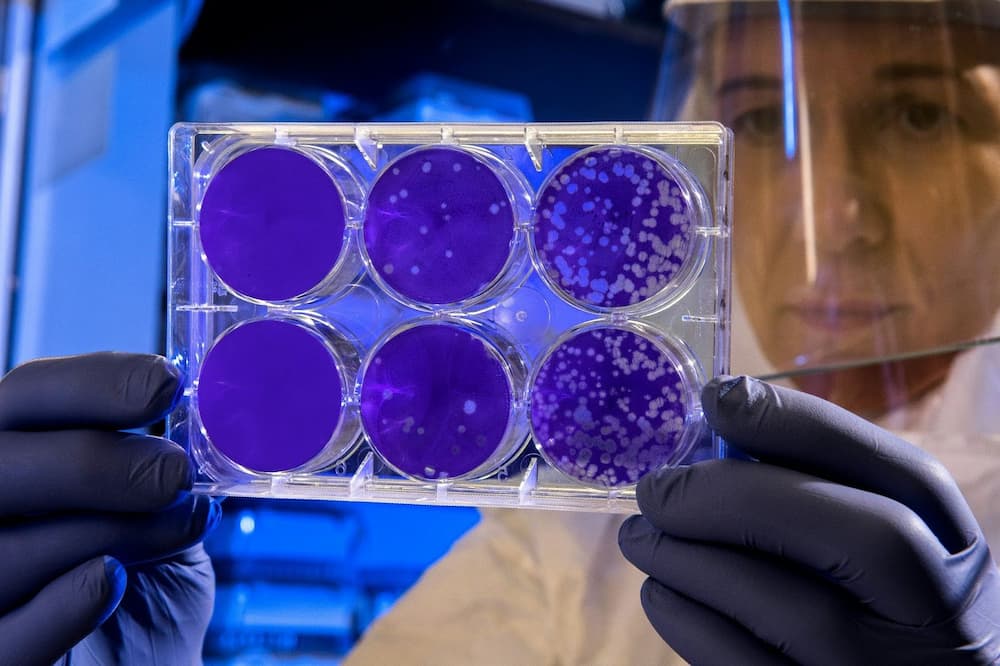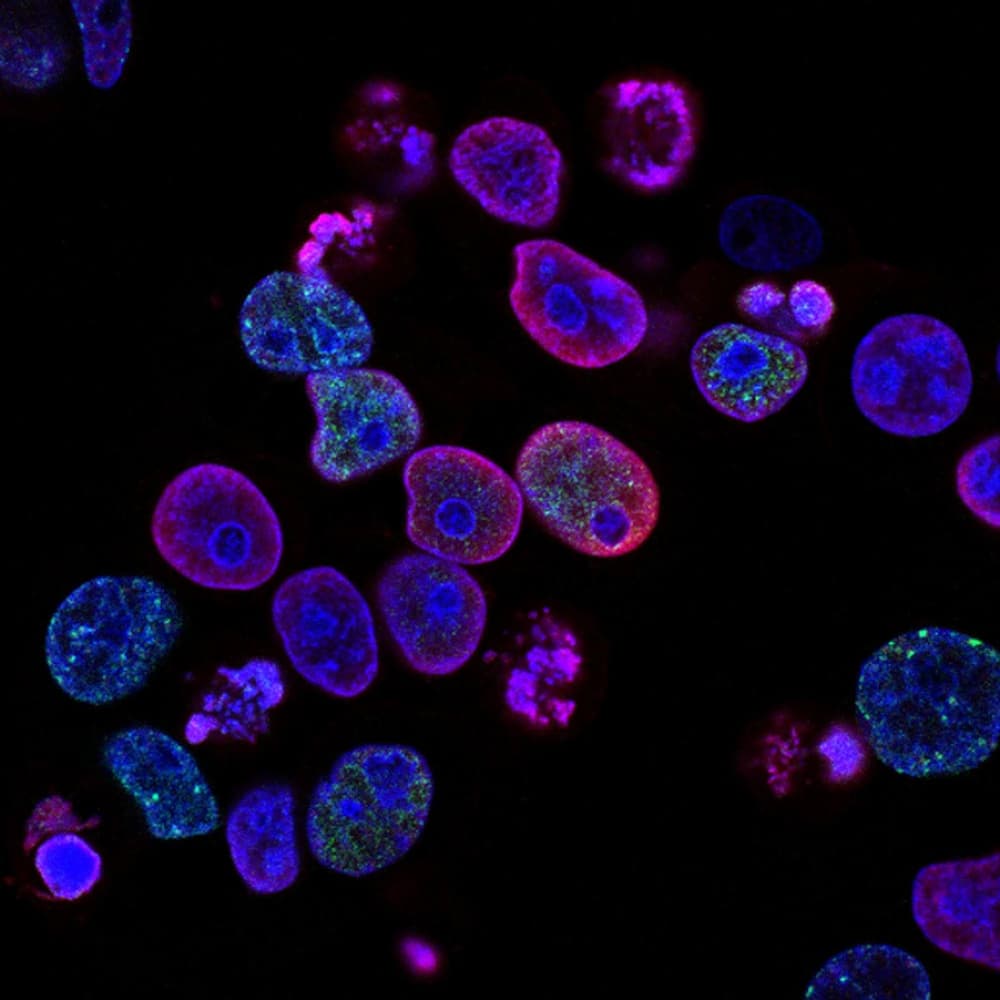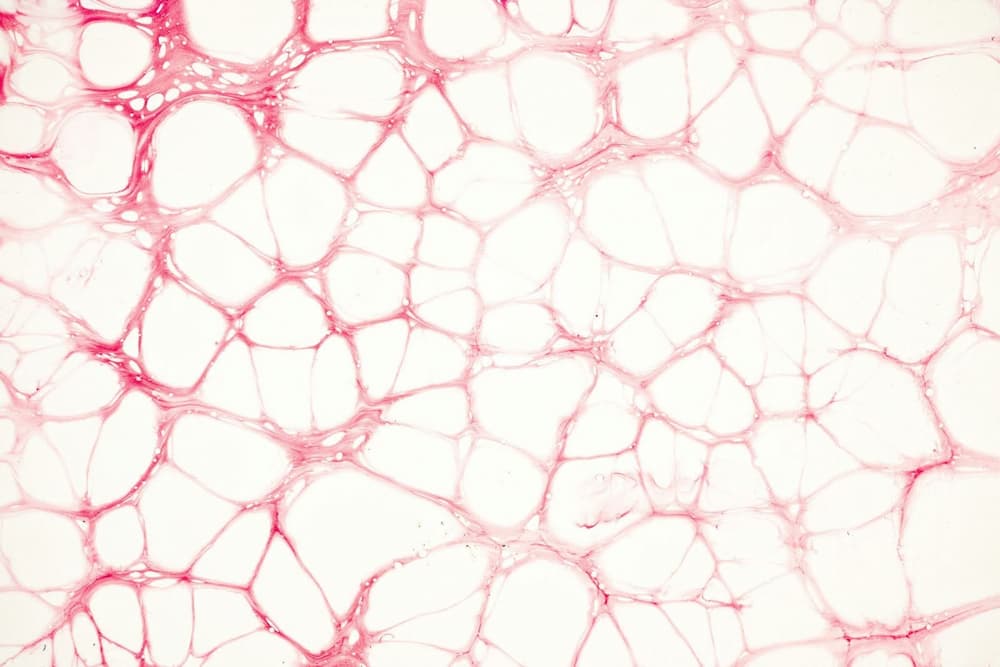
Hashimoto’s thyroiditis is a disorder that causes the body’s immune system to attack healthy cells. Such a medical condition leads to insufficient hormone production. Hashimoto’s Disease is one of the most common causes of hypothyroidism. It is quite a common illness: for example, in America alone, it affects 5 in 100 people. Although treatments are currently limited, the use of stem cells for thyroid is a promising option.
In this article, we’ll examine what Hashmimoto’s thyroiditis is and how stem cells can be used to treat it.
What is Hashimoto’s Thyroiditis?
Hashimoto’s is a disorder in which the body’s immune system begins to attack healthy cells.
Hashimoto’s disease affects the thyroiditis gland, which is located at the base of the neck and is responsible for producing hormones that regulate numerous functions in the human body. One of the most important functions of the thyroiditis gland is controlling metabolism – a process related to energy levels and body temperature, among other things.
Having Hashimoto’s thyroiditis means the death of a large number of hormone-producing cells in the thyroid gland. The disease can lead to hypothyroidism, a condition in which the human body is not producing enough hormones, which can affect your heart rate and metabolism.
The exact causes of Hashimoto’s thyroiditis are unknown, and there are still debates going on regarding the factors that contribute to the development of this disease the most. Some individuals can develop this medical condition due to genetics, while others may experience it due to bacteria or viruses affecting the immune system. Factors like excessive radiation or stress can also contribute to the development of Hashimoto’s thyroiditis.
Although treatments for such a condition are currently limited, stem cell therapy for Hashimoto’s thyroid is viewed as a promising alternative.
Understanding the different symptoms of Hashimoto’s thyroiditis is essential before looking at stem cell therapy for thyroid disease. It can help individuals better comprehend the feasibility of this treatment option.
Get a free online consultation
Contact us to learn about the expected results of stem cell treatment for peptic ulcer disease, its cost and duration, and what the treatment involves.

Medical Advisor, Swiss Medica doctor
Symptoms of Hashimoto’s Thyroiditis
The symptoms of Hashimoto’s thyroiditis may take several years to develop and can vary from individual to individual.
Among the most common symptoms is goitre, underactive, or overactive thyroid. Each of the symptoms has varying effects on the human body. A goitre, for instance, is when the thyroid gland becomes enlarged, causing severe swelling in the neck area and leading to breathing, swallowing, or speaking difficulties.
If the thyroid gland is underactive and not producing enough hormones, one can experience the following symptoms.
- Dry skin and dermatitis
- Hair loss
- Decreased libido
- Irregular menstrual cycle in women
- Frequent constipation
But in some cases, the gland becomes overactive and starts making more hormones because antibodies are attacking the thyroid. In such cases, the following symptoms are evident:
- Increased heart rate.
- Weight loss.
- Sweating.
- Anxiety.

How is Hashimoto’s Thyroiditis Diagnosed?
For individuals experiencing any of the symptoms mentioned above, it’s essential to know that they can be an indicator of other medical conditions. Therefore, it’s necessary to see a healthcare professional for a diagnosis.
If one is diagnosed with Hashimoto’s thyroiditis, the doctor will generally check to see if they have a goitre. In addition, they may also recommend other tests that aid in the diagnosis. This includes:
- Thyroid Stimulating Hormone (TSH) test examines the TSH hormone made by the pituitary gland. The human brain sends TSH to the thyroid when not enough hormones are being produced. For examination, medical professionals collect blood samples and measure the level of TSH within. If the level is higher than the optimal range of TSH, it could indicate that the person is suffering from hypothyroidism.
- Thyroxine (T-4) test measures the main thyroid hormone in your body. The test is used to determine if there are any problems with the thyroid by examining the prevalence of T-4 deficiency.
- Antibodies Test examines a protein involved in thyroid hormone production called thyroid peroxidase to determine if an antibody is present. This is done through two types of antibodies: thyroid peroxidase and thyroid-stimulating hormone. The presence of an antibody can confirm whether a person is suffering from Hashimoto’s thyroiditis. However, in some cases, more than one antibody test may be required for confirmation.
The standard reference ranges for these tests are mentioned below.
| Tests | Standard Range |
|---|---|
| Thyroid Stimulating Hormone (TSH) | 0.42 – 4.12 mI/UL |
| Thyroxine (T-4) | 4.5 – 9.8 μg/dL |
| Antibodies | Below 35 IU/ML |
*Please note that it’s essential to consult with a professional or the lab where the tests were taken before comparing them to your own results. The interpretation of these results will usually be individual and subject to many factors
How do Stem Cells Work for Hashimoto’s Disease Treatment?
Stem cell thyroid therapy is considered to be a favourable option. It is being explored further due to the limitations of the current treatments. Stem cells that can be used for thyroid diseases are divided into the three categories mentioned below:
- Mesenchymal stem cells (MSCs) — they are known to have anti-inflammatory properties, which increases their potential effectiveness in thyroid treatment. The cells can be found in the stroma surrounding organs and in connective tissues.
- Embryonic stem cells (ESCs) — these are derived from the early stages of embryonic development and are capable of differentiating into various cell types. However, there are certain ethical, moral and health concerns associated with this method. For instance, it’s important to note that in some cases they are associated with risks of tumour development after the treatment. However, we do not use embryonic cells, rather adapting a more safe approach.
- Organ resident stem cells (RSCs) — have the potential to regenerate organ-specific cells and can be found in different organs of the body.
A recent study suggests that the transplantation of MSCs could be a potential strategy for treating Hashimoto’s thyroiditis. The study looked at whether MSC transplantation could control Th17/Treg interactions. The results of the study indicate that MSC transplantation did indeed lower thyroid autoantibody levels.
Fewer thyroid lesions and less lymphoid infiltration, along with decreased Th17 cells and more Treg cells, were also seen. Therefore, it can be concluded that MSCs are an integral part of stem cell therapy for Hashimoto’s thyroid.
These cells work by promoting tissue repair and modulating the immune system, which can contribute to fewer thyroid lesions and improved thyroid functioning.

What Improvements Do Patients Get?
Given their ability to stimulate the immune system and regenerate tissue, stem cells for the thyroid are a promising treatment. Based on results from animal models and our personal experience, the therapy will help to:
- Slow down or even completely stop autoimmune processes for a while, including autoimmune thyroiditis
- Restore damaged thyrocytes (thyroid cells) and promote the emergence of new ones
- Normalize the production of thyroid hormones (if at the time of treatment there is still functioning tissue left, it is possible to reduce the dose of replacement therapy or even abandon it)
- Increase overall endurance and muscle strength
- Improve cognitive processes
Safety Concerns and Side Effects
Although Hashimoto’s stem cell therapy is becoming more promising, there are certain safety issues related to this approach. Those issues, however, generally address using embryonic cells.
At Swiss Medica, we only use adult mesenchymal stromal cells, which have several advantages compared to embryonic cells:
- No ethical issues: no one is harmed while harvesting the cells
- No risk of tumors: such risk presents only when using embryonic cells
- All side effects are temporary and easily manageable
All this makes us able to ensure that the therapy will not worsen the condition of the patient and have no lasting side effects.
What Does the Treatment Program Include?
Stem cell therapy for Hashimoto’s thyroid may vary among cases. The treatment program may include using donor cells from the umbilical cord and placenta, as well as exosomes from these cells. We combine cell therapy with metabolic therapy (IMR) to achieve maximum effect.
In some cases, it is possible to use your own cells instead of donor cells (adipose tissue and bone marrow), but this is determined by the doctor. Stem cell treatment for thyroid disease may also be combined with hormone replacement or other medicines.
Cost of Stem Cell Therapy for Hashimoto’s Thyroiditis
Hashimoto’s stem cell therapy is a promising option; however, such a treatment can be expensive. In addition, insurance coverage for the treatment may not be readily available, and the exact cost could vary among patients and cases. Generally, depending on the necessary procedures, the cost of treatment can be anywhere from €7,000 to €31,000*.
*The prices mentioned are indicative and subject to change based on individual factors, including the condition’s severity and the number of stem cells needed. Prices are valid as of January 2025.
Summary
Hashimoto’s thyroiditis is a disorder affecting the thyroid gland, causing it to produce insufficient hormones. This medical condition can be caused by many factors, including genetics, bacteria, or excessive radiation exposure.
Current treatment options for the disease are limited; however, stem cell therapy for Hashimoto’s thyroid, due to its response and regenerative capability, is seen as an effective way of treatment.
We strongly encourage consulting a medical professional for possible side effects and an evaluation of the effectiveness of the treatment.
Contact us
Get a free online consultation to learn about the expected results of the treatment, its cost and duration, and what the treatment involves.

Medical Advisor, Swiss Medica doctor
List of References
https://www.hopkinsmedicine.org/health/conditions-and-diseases/hashimotos-thyroiditis
https://www.sciencedirect.com/topics/medicine-and-dentistry/adult-stem-cell
https://www.tandfonline.com/doi/abs/10.1080/08916934.2019.1697689
https://www.webmd.com/women/hashimotos-thyroiditis-symptoms-causes-treatments
MD, Physician in General Medicine, Gastroenterology, Rheumatology, Pulmonology, Cardiology. Regenerative specialist






